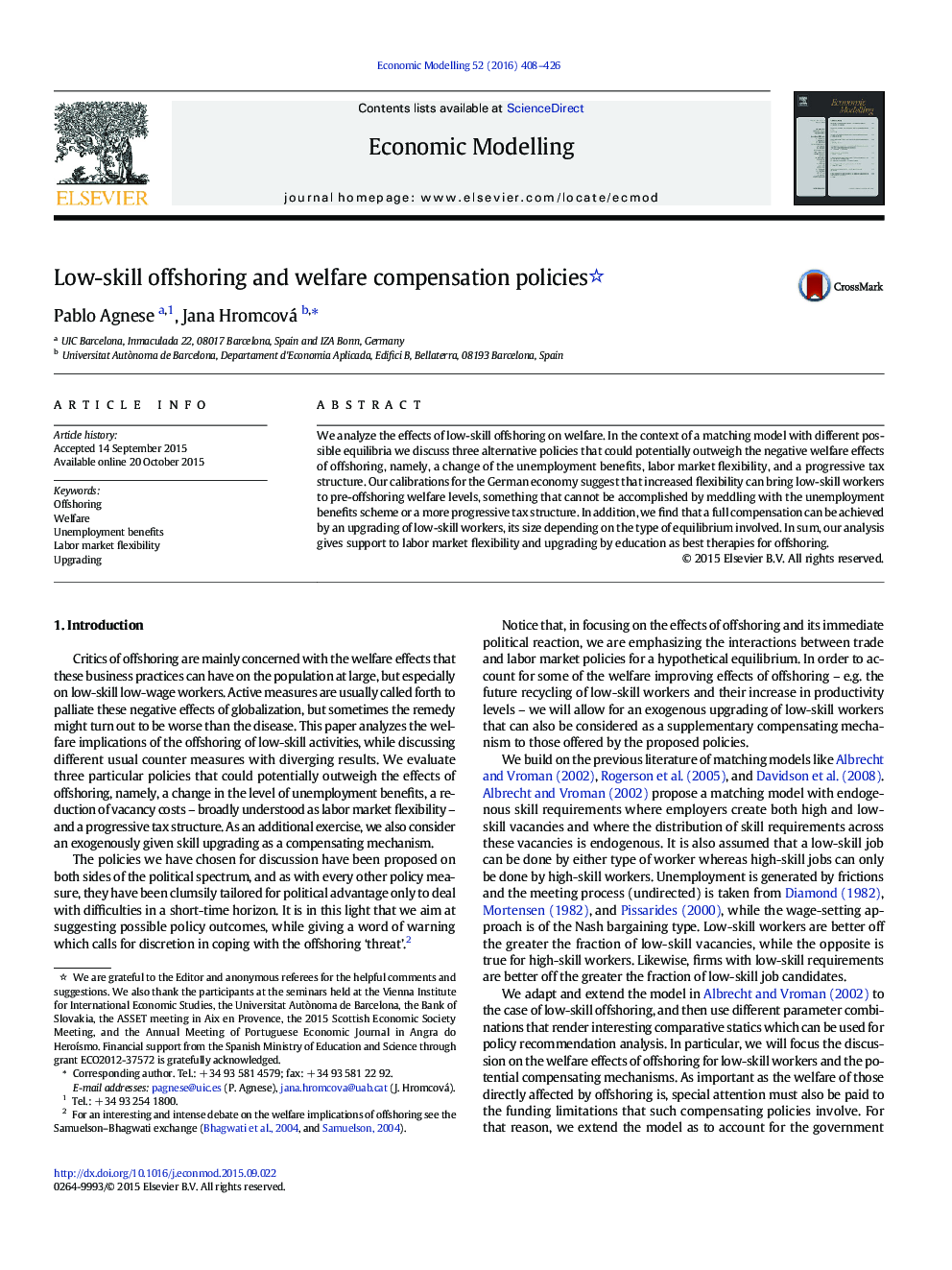| کد مقاله | کد نشریه | سال انتشار | مقاله انگلیسی | نسخه تمام متن |
|---|---|---|---|---|
| 5053643 | 1371457 | 2016 | 19 صفحه PDF | دانلود رایگان |
- We analyze the effects of low-skill offshoring on welfare.
- We evaluate several mechanisms which can compensate for the negative effects.
- We use a matching model with frictions with two types of workers and firms.
- Labor market flexibility is recommended as a welfare improving tool.
- Skill upgrading of low-skill workers is also encouraged.
We analyze the effects of low-skill offshoring on welfare. In the context of a matching model with different possible equilibria we discuss three alternative policies that could potentially outweigh the negative welfare effects of offshoring, namely, a change of the unemployment benefits, labor market flexibility, and a progressive tax structure. Our calibrations for the German economy suggest that increased flexibility can bring low-skill workers to pre-offshoring welfare levels, something that cannot be accomplished by meddling with the unemployment benefits scheme or a more progressive tax structure. In addition, we find that a full compensation can be achieved by an upgrading of low-skill workers, its size depending on the type of equilibrium involved. In sum, our analysis gives support to labor market flexibility and upgrading by education as best therapies for offshoring.
Journal: Economic Modelling - Volume 52, Part B, January 2016, Pages 408-426
